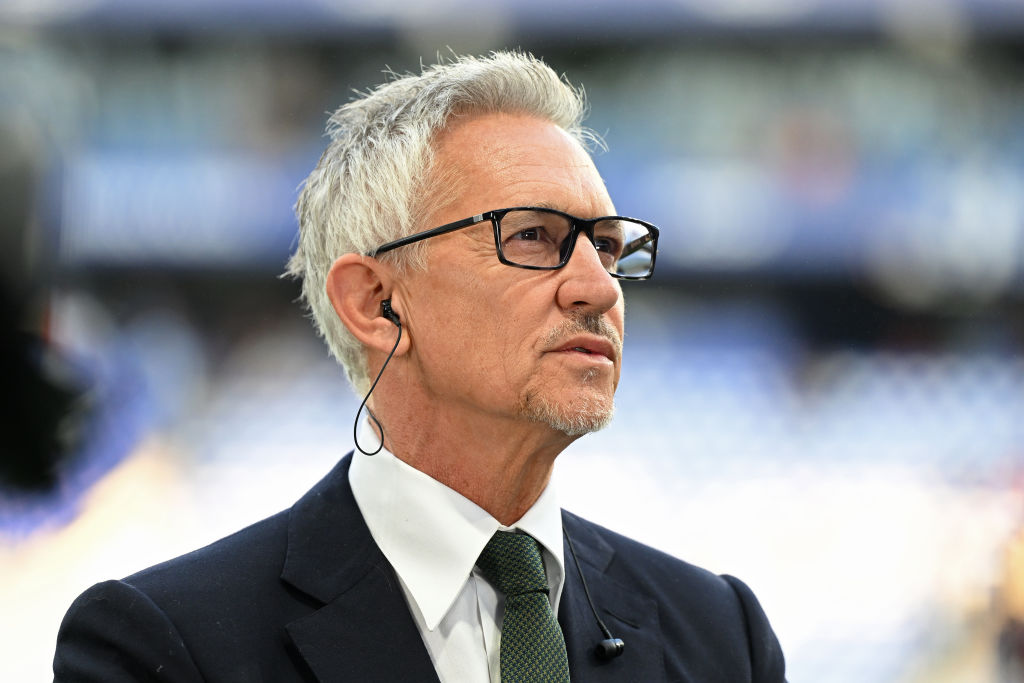Gary Lineker has announced that he is leaving Match of the Day, and so the country has divided into its usual tribes. Good riddance, woke warrior, says one; another dark day for broadcasting, says the other. Both sides have a point: he was woke, and he was good at his job. Yet each misses the wider significance of Lineker’s departure.
For me and many others, football acts as a form of theatrical escapism that is both an entertainment and a social glue, creating what we might now call a “safe space” to bond with people across the usual social barriers. It has no purpose, as Roger Scruton once remarked of friendship, but is part of what makes life meaningful, weaving its way into our experience of home.
For that reason, I’d rather not have to form any kind of opinion about the presenter of Match of the Day, happy to bathe contentedly in my ignorance of his views about the war in Gaza or how to tackle climate change. More than that, though, I think it will be to the great detriment of our national life if football becomes infected by politics, robbing us of the joy many take from pottering happily with friends, family and strangers in the meaningless fields of our national sport.
To many, of course, this is part of the reason Des Lynam will always be the Platonic ideal of a football presenter: a civilised man’s man who also had an eye for the ladies, football’s Roger Moore. As it happens, I will always hold a candle for Channel 4’s James Richardson as the real heir to Lynam: the national host we never had, who now spends much of his time podcasting — which itself is rather telling.
Still, Lineker was a decent Match of the Day replacement for Lynam in 1999: smart, eloquent and gently amusing, a clean-cut representative for a new era of football. The real problem today is that Lineker has seamlessly transitioned into the new world in which we now live: a world of hyper-politicisation and opinion, dominated by social media and podcasting. Lynam faded nostalgically into our national memory as a man from an older age. Lineker, in contrast, has successfully morphed with the times.
Today, we can look back on the early 2000s as the era of prime Premier League drama, with Lineker handed the job of being its bard. In politics, his equivalent was David Dimbleby, who presided over the most important political events with a calm, apolitical grandeur that has now been lost. “At 20 minutes to 5, we can now say the decision taken in 1975 by this country to join the common market has been reversed by this referendum to leave the EU,” Dimbleby declared in 2016, capturing the historic nature of the vote. Comparing this with the BBC’s last election coverage is utterly dispiriting, as is the fact that he was replaced by Huw Edwards.
Beyond Edwards, the other heirs to Dimbleby were Emily Maitlis and Jon Sopel, who now find themselves as the faces of just one half of tribal Britain having traded the gravitas of neutrality to become political influencers on social media. This is seemingly Lineker’s choice as well. And who can blame any of them? Lineker is now the podcast king, owner of Goalhanger Podcasts, which produces the extraordinarily popular The Rest Is… series.
As a result, though, we have lost something as a country. On election night earlier this year, everything felt more partisan, with nothing catering to the whole with anything like the dignity of old. In football, I fear something similar will happen as Match of the Day sinks into obscurity, replaced by ranting fan accounts on Youtube and the brain-numbing populism of 5 Live with Robbie Savage. Today, I find myself back with James Richardson as my podcast guide to the week’s action, while my son watches the goals on YouTube.
Perhaps it is just nostalgia on my part but, as Scruton understood, there is a purpose in the purposeless knick-knacks of our national life, from the Grand National to Match of the Day: “to make these objects into an expression of ourselves and our common dwelling place”. The significance of Lineker’s departure is that we are losing this common land where we can all wander free of politics. It will be hard to find it again.











Join the discussion
Join like minded readers that support our journalism by becoming a paid subscriber
To join the discussion in the comments, become a paid subscriber.
Join like minded readers that support our journalism, read unlimited articles and enjoy other subscriber-only benefits.
Subscribe